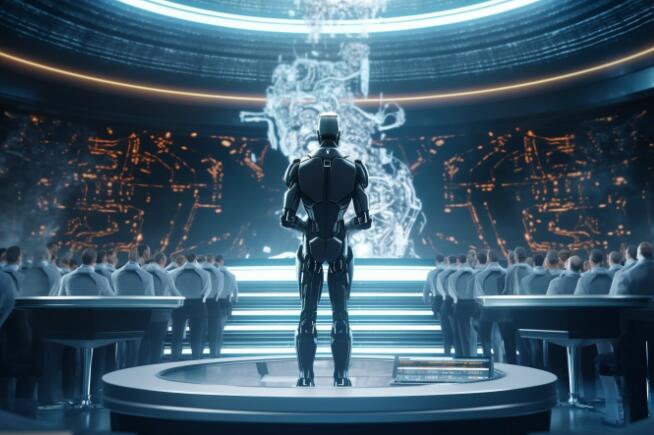Vectara's Guardian Agent Aims to Eliminate AI Hallucinations
Artificial intelligence adoption in enterprise settings faces a persistent challenge: the tendency of AI systems to generate false or unsubstantiated information, known as "hallucinations." While techniques like retrieval-augmented generation (RAG) and data quality improvements have attempted to address this issue, their effectiveness remains limited. Vectara, an early proponent of RAG technology, has now introduced a groundbreaking solution called the Vectara Hallucination Corrector.

Unlike traditional approaches that focus on detection or prevention, Vectara's guardian agent takes an active correction approach. This software component monitors AI workflows in real-time, implementing protective measures and making precise modifications while preserving the original content's intent. The system provides detailed explanations for each correction, offering unprecedented transparency in AI outputs.
Eva Nahari, Vectara's Chief Product Officer, explains: "As enterprises increasingly rely on proxy workflows, the consequences of AI hallucinations multiply exponentially. Our guardian agent represents a paradigm shift - instead of just identifying problems, we're solving them at scale."
The company reports remarkable results, claiming their system has reduced hallucination rates in small language models (under 7 billion parameters) to below 1%. This breakthrough could unlock new applications for AI in sensitive business operations where accuracy is paramount.
To support industry-wide progress in hallucination correction, Vectara has also released HCMBench, an open-source evaluation toolkit. This standardized benchmark allows organizations to assess different correction models using multiple metrics. Interestingly, it even enables verification of Vectara's own performance claims.
What does this mean for businesses? Rather than abandoning AI in high-risk scenarios or settling for unreliable outputs, companies can now consider deploying systems capable of self-correction. This approach proves particularly valuable for high-value workflows requiring extreme precision. However, experts recommend maintaining human oversight during initial deployments and utilizing tools like HCMBench for thorough validation.
As this technology matures, enterprises may finally overcome one of AI's most persistent limitations. The ability to automatically correct hallucinations could pave the way for safe deployment in previously restricted domains while meeting the stringent accuracy demands of critical business operations.
Key Points
- Vectara's guardian agent actively corrects AI hallucinations rather than just detecting them
- The system claims to reduce hallucination rates below 1% in small language models
- An open-source evaluation toolkit (HCMBench) enables standardized performance testing
- Solution enables safer AI deployment in high-value enterprise workflows
- Human oversight remains recommended alongside automated correction systems